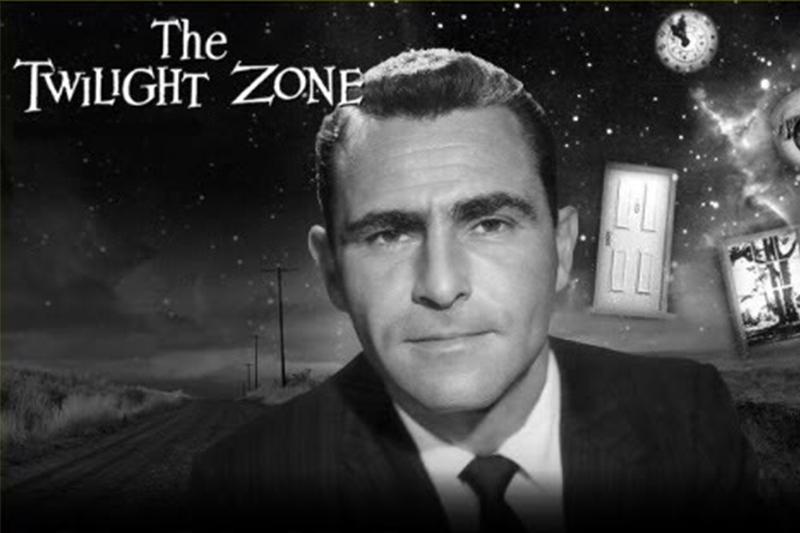Mr. Twilight Zone
November 7, 2014
Renowned television writer, producer, host, narrator, and creator of the classic science fiction show, The Twilight Zone, Rod Serling once said he only wanted to be remembered as a writer. Before his death in 1975, Serling became known as a creative genius for his work. After his death, his status as a screenwriter grew to cult status.
The Twilight Zone became infamous for its unique stories that featured twists. Many of the episodes explored ideas and topics regarding society and the human mind. Rod Serling, the creative mind behind The Twilight Zone, wrote most of the episodes. Although he worked with a team of writers and would have his input, Serling made sure the episodes pondered the unknown and the curiosity of the mind. Topics such as death, the afterlife, love, evil, extra-terrestrials and outer space were a common theme throughout the shows run.
The show displayed human beings in extreme circumstances, in strange problems of their own life and fate. It is the stories and how Serling captured the audiences attention that made the show appealing, thus becoming a cult classic. The characters in the show portrayed individuals, groups, and topics of the time. This means episodes related to controversial topics such as socialism, racism, and war. The Twilight Zone allowed the audience to enter the mind of imagination. With that in mind, this left the audience asking questions and pondering with imagination. Science fiction is all about creativity and how the mind thinks about setting, technology, space, travel, the universe, extraterrestrial life, and time. This is what defines The Twilight Zone.
Although Serling is best known for The Twilight Zone, other notable works includes Rod Serling’s Night Gallery, and the cult classic The Planet of the Apes. Serling’s first big break came with television drama Patterns. The show became so popular that it became the first show to be broadcasted a second time due to popularity. The success of Patterns led Serling to write Requiem For A Heavyweight and A Town Has Turned To Dust. These two dramas are considered some of the best writing ever done for television. Due to the success of Requiem For A Heavyweight, Serling decided to create a feature film of the story, which was released in 1962.
It is without question that The Plant of The Apes would become Rod Serling’s most famous story. The feature film tells the story of a world taken over by apes and how we as humans act as society and how humans view themselves. The film is considered one of the greatest works in cinematic history and was a milestone for the science-fiction genre. Although Serling’s screenplay was rewritten and changed, the structure of the story remained the same as well as Serling’s brilliant ending. The end of the film is considered one of the most famous movie endings of all time.
Rod Serling, a six-time Emmy winner for his work, was an extremely talented and gifted artist who wrote and created some of the best science fiction work of all time. Since his death, Serling has been introducted into the Television Hall of Fame in 1985 and the Science Fiction Hall of Fame in 2008. He has also been honored with a star on the Hollywood Walk of Fame and ranked by TV Guide #1 on the “25 Greatest Sci-Fi Legends” list. In an interview shortly before his death, Rod Serling explained that he didn’t believe his writing would stand the test of time. Little did Rod Serling know that he and his work ,will be remembered for years to come.
I leave you the reader with three different introduction monologues Rod Serling wrote for The Twilight Zone. Each monologue is unique but have one thing in common, they are words from one of the most famous theme songs in television history.
You’re traveling through another dimension — a dimension not only of sight and sound but of mind. A journey into a wondrous land whose boundaries are that of imagination. That’s a signpost up ahead: your next stop: the Twilight Zone!
You unlock this door with the key of imagination. Beyond it is another dimension: a dimension of sound, a dimension of sight, a dimension of mind. You’re moving into a land of both shadow and substance, of things and ideas. You’ve just crossed over into… the Twilight Zone.
There is a fifth dimension beyond that which is known to man. It is a dimension as vast as space and as timeless as infinity. It is the middle ground between light and shadow, between science and superstition, and it lies between the pit of man’s fears and the summit of his knowledge. This is the dimension of imagination. It is an area which we call “The Twilight Zone.”
For more information on Rod Serling check out the links below.
http://www.pbs.org/wnet/americanmasters/episodes/rod-serling/about-rod-serling/702/
https://www.youtube.com/watch?v=9kZcHylU2t8












